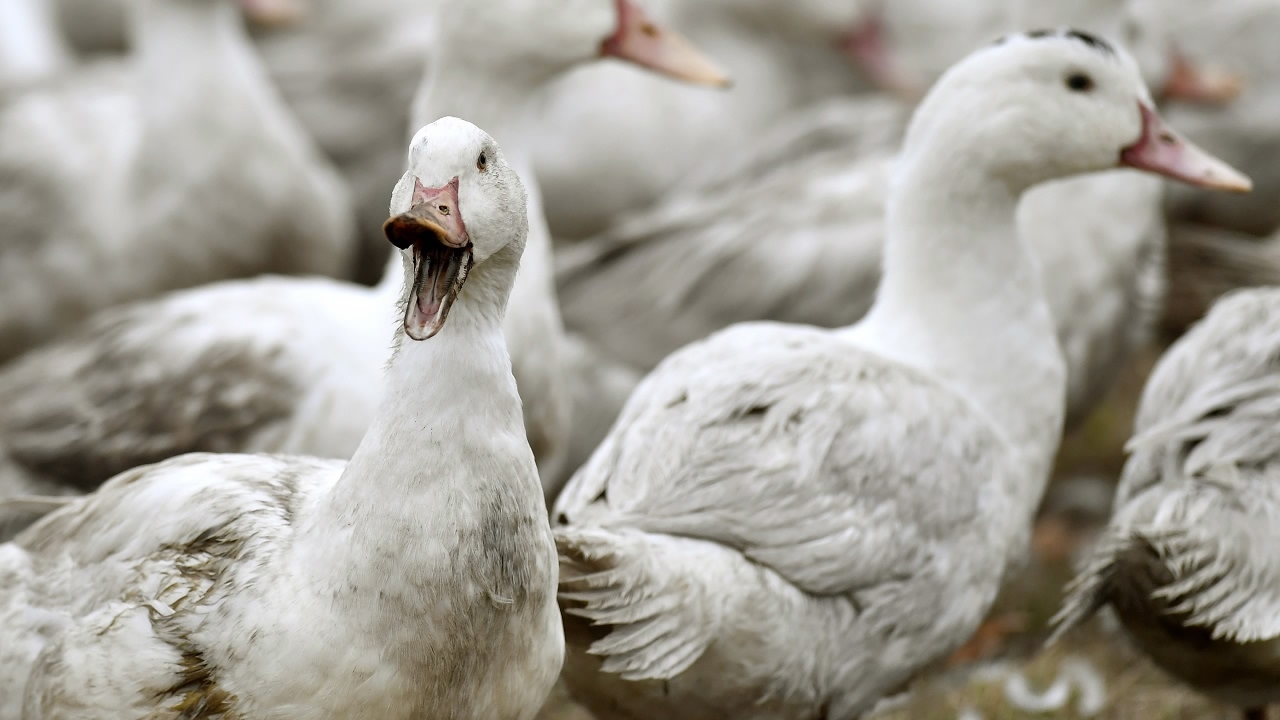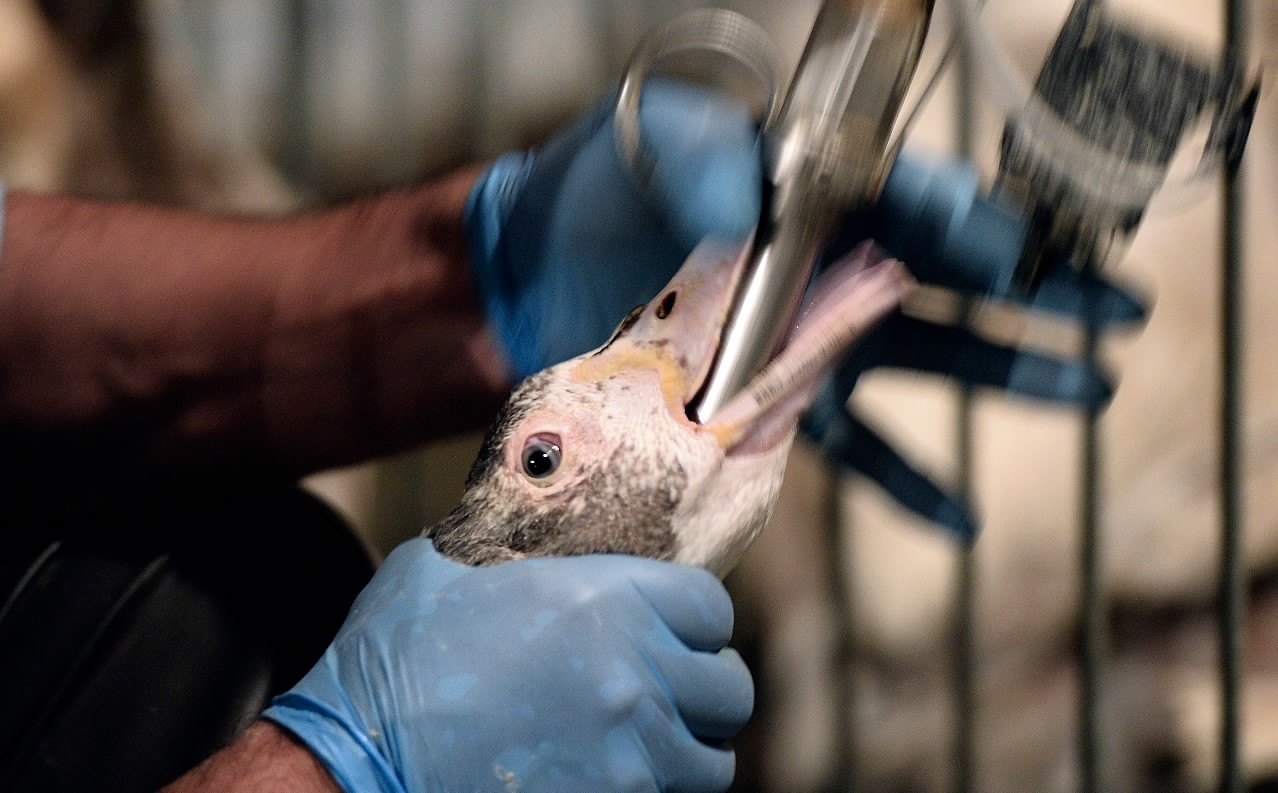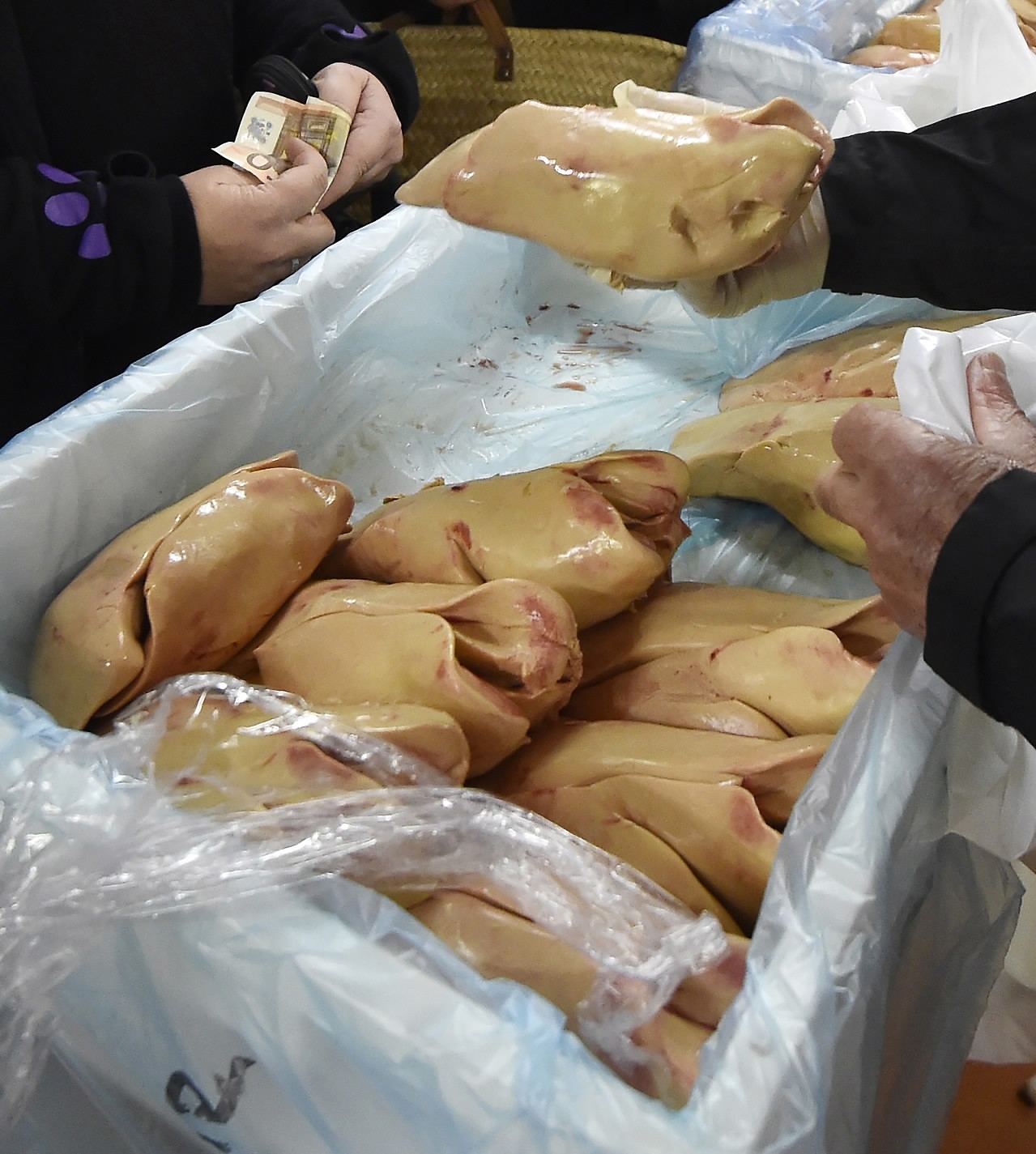
Animal
12:35, 16-Sep-2017
California court reinstates foie gras ban

A US court in California on Friday reinstated a ban on foie gras in a move celebrated by animal rights activists who have long opposed the controversial French delicacy made by force-feeding ducks and geese.
The decision reverses a previous ruling in 2015, which said that a statewide ban on the food was superseded by federal law on the matter.
California's legislature had voted on its ban in 2004 with an eight-year grace period – after which any restaurant caught selling the product risked a fine of 1,000 US dollars.

PETA said that only the most callous chefs could stomach the practice of force-feeding poultry to produce diseased livers that it described as "torture on toast and unimaginably cruel." /AFP Photo
PETA said that only the most callous chefs could stomach the practice of force-feeding poultry to produce diseased livers that it described as "torture on toast and unimaginably cruel." /AFP Photo
Friday's judgment, which won't go into effect until the completion of an appeals process, was hailed by animal rights organizations but blasted by chefs and food groups who said it violated their freedoms.
People for the Ethical Treatment of Animals (PETA) said in a statement, "the champagne corks are popping," adding that only the most callous chefs could stomach the practice of force-feeding poultry to produce diseased livers that it described as "torture on toast and unimaginably cruel."
An association of foie gras producers in Canada and New York as well as a restaurant in Los Angeles had contested the state law, saying it interfered with domestic trade law.
Ken Frank, a chef at the La Toque French restaurant in Napa Valley said the ban was a "terrible piece of legislation," according to the San Francisco Chronicle, adding that he expected it to be eventually lifted.

AFP Photo
AFP Photo
TV chef Eric Greenspan told the Los Angeles Times the decision was "just crazy."
"Don't eat it if you don't want to, but don’t impede on anyone’s rights to do what they want to do," he said, adding: "Let's ban assault rifles before we ban foie gras if you want to talk about cruelty."
Jared Goodman, PETA's director of animal law, told AFP the court ruling was "a huge step towards finality."
Its opponents now have 14 days to file an appeal before a wider bench, failing which it would become law – though if the appeal is heard, a final decision could be some time away.
The case could in theory eventually end up before the Supreme Court, an outcome seen as unlikely by Goodman.
Source(s): AFP

SITEMAP
Copyright © 2018 CGTN. Beijing ICP prepared NO.16065310-3
Copyright © 2018 CGTN. Beijing ICP prepared NO.16065310-3